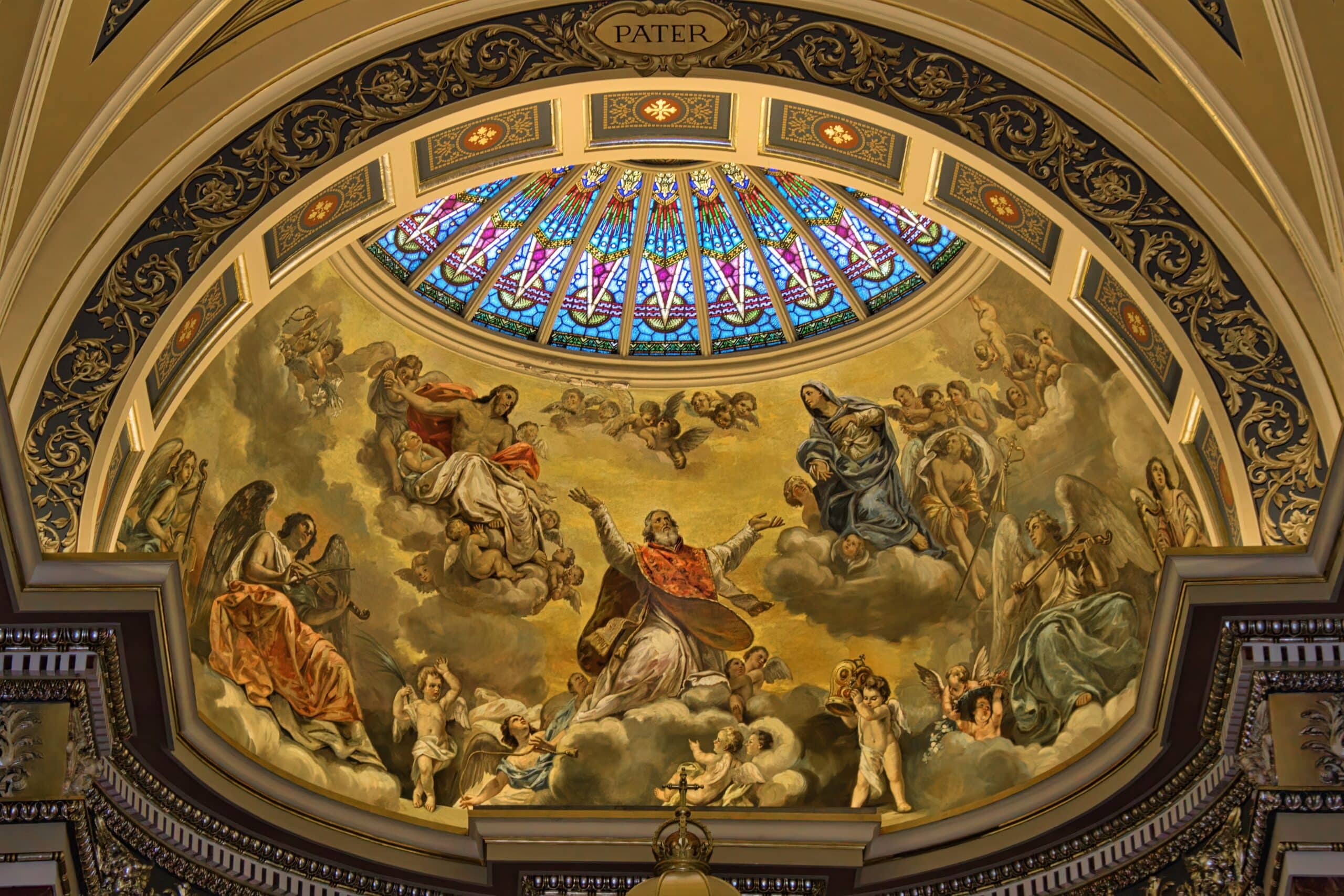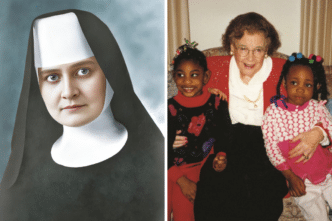Feast day: Nov. 12
An Eastern Rite bishop, St. Josaphat was a martyr for Christian unity, as he died trying to bring the Orthodox churches into union with Rome. Born in 1580 in western Ukraine to Orthodox parents, John Kuntsevych, as he was christened, was a youth when his branch of the Ruthenian Church accepted reunification with the Holy See while maintaining their Byzantine liturgy and traditions. It was this dual-focused background that made St. Josaphat ardent in his yearning for Christian unity and also a fitting spokesperson who understood the positions of both sides, despite being hated by those Ruthenians who continued in schism. Devoted to the universal Church, centered in Rome and founded by Christ, St. Josaphat nevertheless refused to disallow Byzantine-rite Catholics from celebrating Mass according to their traditions. He lived a simple life of self-mortification and care for the poor. He was eventually martyred for living out the beatitude of being a peacemaker. The life of St. Josaphat provides hope in any polarized situation as his rival was ultimately reconciled with Rome.
“You people want to kill me. You wait in ambush for me in the streets, on the bridges, on the highways, in the marketplace, everywhere. Here I am; I came to you as a Shepherd. You know I would be happy to give my life for you. I am ready to die for union of the Church under St. Peter and his successor, the Pope.”
Such is the courage of St. Josaphat, who said these words while seeking to unite the Church amid a hostile environment. From a well-off family, he was apprenticed to a merchant and could have lived a comfortable life as a married man. But he gave everything for Christ when he entered a Basilian monastery in 1604, encouraged by two Jesuits, and took the name of Josaphat. Here he met a kindred spirit in John Benjamin Rutsky, a convert from Calvinism and his fellow advocate for Christian unity with whom he started a movement that developed into the Order of St. Basil. St. Josaphat became known as a very holy man and was sought for spiritual direction, so much so that the Church ordained him a priest and shortly thereafter a bishop.
Promoting the beauty of different liturgical rites
First as bishop of Vitebsk, and then Polotsk, Belarus, St. Josaphat inherited a situation in which some clergy were marrying two or three times and did not practice pastoral care or exhibit exemplary Christian living. St. Josaphat made an impact on reform by holding synods, publishing a catechism and enforcing rules of conduct for the clergy. His example of preaching, catechizing and visiting local towns influenced many within his diocese.
Although St. Josaphat saw the beauty of having many liturgical rites within the Church, he was misunderstood by both sides — including the Polish bishops — in the argument over unity. Slander ensued, and he became the controversial topic of people’s discussions. Since he was responsible for the clergy, St. Josaphat had to discipline some of them who were publicly promoting divisive positions that were critical of union with the pope. Unsubstantiated rumors spread that St. Josaphat would abolish Byzantine traditions for Latin ones. Moreover, Orthodox separatists set up their own bishop in the same area, and riots broke out when the King of Poland declared St. Josaphat the only legitimate archbishop.
Defended by the Jewish people of Vitebsk
Aware that the movement against the pope was strong in Vitebsk, St. Josaphat traveled there as a reconciler. However, followers of the rival archbishop turned into a mob and attacked his lodgings and companions. As he appealed to them, two men attacked him: One hit St. Josaphat with a club while the other split open his head with an ax. His bloody body, weighed down with stones, was thrown into the River Dzvina along with that of a dog that had tried to protect him.
The Jewish people of Vitebsk had tried to save St. Josaphat and his companions, and they courageously rescued some of his sympathizers. They were the only religious group to publicly accuse the murderers and mourn the death of St. Josaphat. However, his death convinced many people to convert to Catholicism and support Christian unity. His rival, the Orthodox archbishop, was eventually reconciled with the Catholic Church. Centuries later, Pope St. John Paul II expressed these words calling for the Orthodox to be reunited with Rome, “May God shorten the time and distance (to full ecclesial communion). May Christ, the Orientale Lumen, soon, very soon, grant us to discover that in fact, despite so many centuries of distance, we were very close, because together — perhaps without knowing it — we were walking towards the one Lord and thus towards one another.”
Reflection
Dear Jesus, it breaks your heart and mine to see your followers divided. May I be an instrument of your peace by sharing friendship with all, in truth and love.
Prayer to St. Josaphat
Stir up in your Church, we pray, O Lord,
the Spirit that filled Saint Josaphat
as he laid down his life for the sheep,
so that through his intercession
we, too, may be strengthened by the same Spirit
and not be afraid to lay down our life for others.
Through our Lord Jesus Christ, your Son,
who lives and reigns with you in the unity of the Holy Spirit,
God, for ever and ever.








